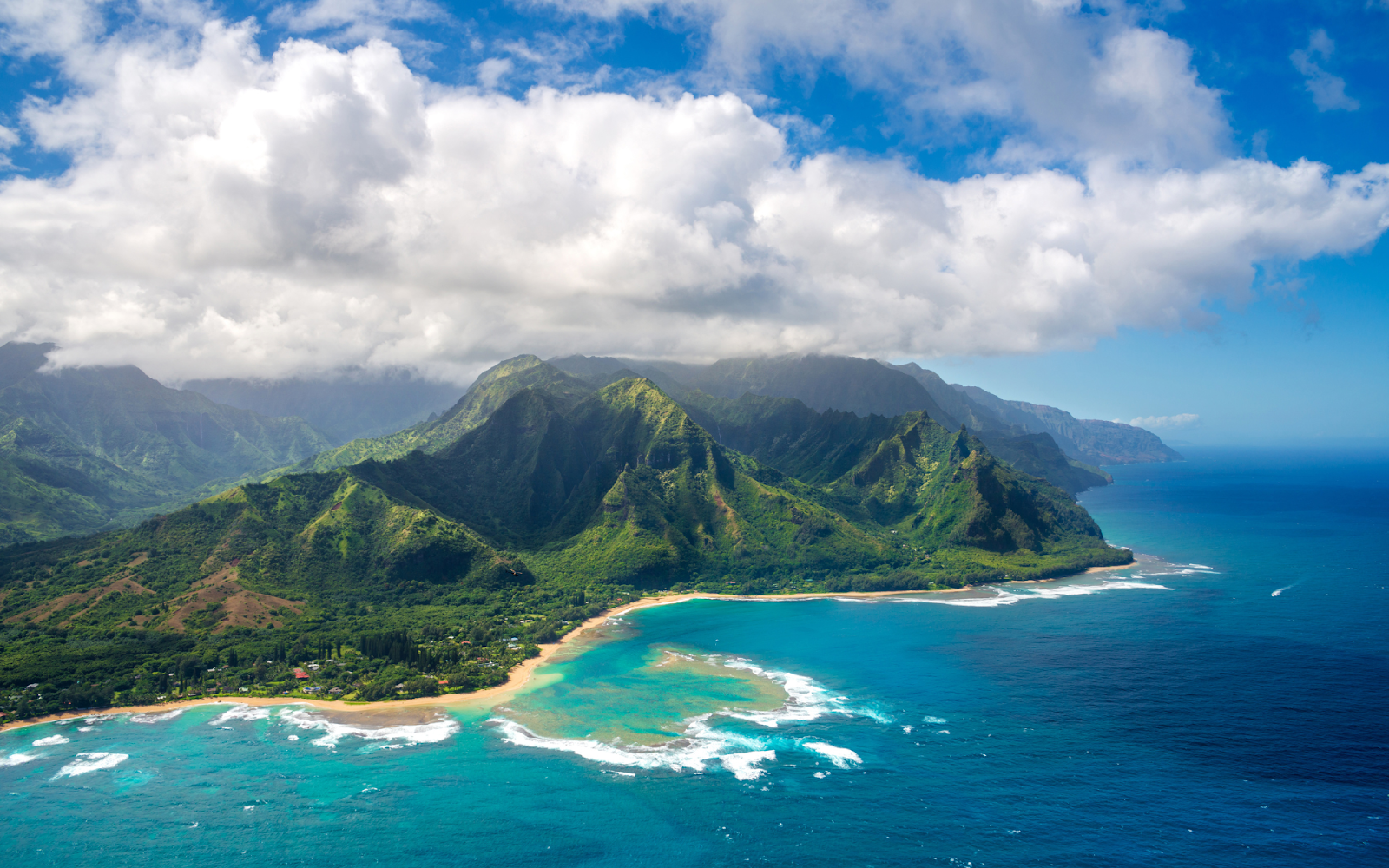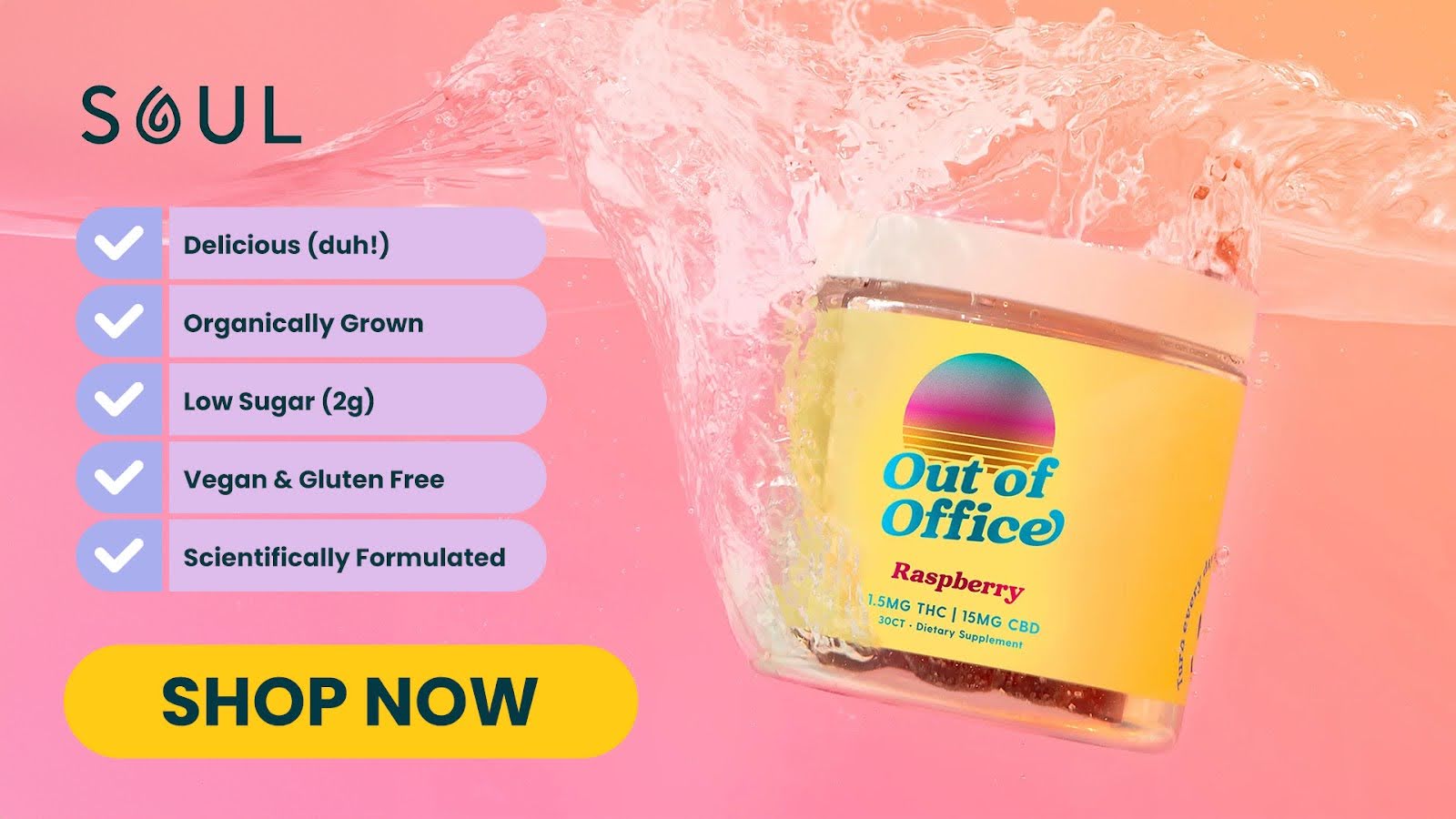
Key Takeaways:
- Medical vs. Recreational Use: THC is legal for medical use in Hawaii with a registered card but remains illegal for recreational use.
- Legal Alternatives: Legal alternatives such as CBD and hemp-derived products are available in Hawaii, providing options for those seeking relief without the psychoactive effects of THC.
- Potential Legal Changes: There is growing advocacy and legislative interest in Hawaii that could lead to changes in THC laws, particularly concerning recreational use.
Soul, one of the top suppliers of wellness items in the market, is known for providing premium, natural solutions that put your health and wellbeing first. Our goods, which are renowned for fusing innovation and heritage, are designed to complement every facet of your contemporary living. In this piece, we explore Hawaii's complex legal framework around cannabis. The differences between THC use for medical and recreational purposes, the laws that are now in place regarding it, the penalties associated with possession, the influence of federal laws on state laws, the legal options that are available, and an outlook on future legislative changes will all be covered. Come along with us as we explore these crucial areas and make sure you know enough to make wise decisions regarding your wellness in Hawaii.
Understanding The Difference Between Medical And Recreational Use
In Hawaii, the distinction between medical and recreational use of THC is significant, influencing both legal permissions and societal attitudes. Medical cannabis was legalized in Hawaii in 2000, allowing patients with qualifying conditions to possess and use cannabis for therapeutic purposes. This system is regulated by the Hawaii Department of Health, which requires patients and caregivers to register and receive a medical cannabis card.
Recreational use of THC, on the other hand, remains illegal in the state. Despite several legislative attempts to legalize it, recreational hemp has not received the necessary support to change the law. The existing legal framework strictly limits the use of THC to those who have demonstrated medical necessity, and does not permit recreational consumption or possession.
Current Laws Governing THC In Hawaii
The legal landscape for THC in Hawaii is detailed and specific to various aspects of cannabis use and possession. Here are some key points:
Medical Cannabis Laws
In Hawaii, access to medical cannabis is restricted to patients who have been diagnosed with specific qualifying conditions. These patients, along with their designated caregivers, must register with the state's medical cannabis registry to obtain a medical cannabis card. This card allows them to purchase, possess, and use medical cannabis as prescribed by a licensed physician. The aim is to ensure that only those with legitimate medical needs have access to cannabis for therapeutic purposes.
Dispensary Regulations
Hawaii's regulated system of dispensaries is designed to safely and responsibly distribute medical cannabis to registered patients. All dispensaries are required to obtain a state license and adhere to rigorous standards, including security measures, product quality control, and regular inspections. These regulations help prevent diversion to the non-medical market and ensure patient safety through the provision of laboratory-tested products.
Possession Limits
Under Hawaii law, registered patients are allowed to possess up to four ounces of usable cannabis over a 15-day period, and they may possess a maximum of eight ounces over a 30-day period. Additionally, patients can cultivate their own cannabis, with the allowance to grow up to ten plants at any given time. These plants must be grown at a designated site registered with the state and not visible to the public, ensuring both patient privacy and public safety.
Transportation And Use
The consumption of cannabis in public spaces is prohibited under Hawaii law, as is the operation of any vehicle under the influence of THC. When transporting medical cannabis, it must be kept in a sealed container away from the driver's reach. These strict regulations aim to prevent impaired driving and public consumption, aligning with Hawaii's commitment to public health and safety.
Penalties For THC Possession In Hawaii
Hawaii's laws impose strict penalties for the unauthorized possession and use of THC outside the medical cannabis program. Here are some of the consequences with more details:
Possession Of Small Amounts
In Hawaii, possession of up to three grams of THC without a medical card is treated as a petty misdemeanor rather than a criminal offense. This results in a fine of up to $130 but does not carry jail time. This measure is part of Hawaii's efforts to reduce the criminal penalties associated with minor drug offenses, focusing more on treatment and less on incarceration.
Possession Beyond Small Amounts
For possession of more than three grams, the legal consequences become more severe. Possession of amounts exceeding this limit can result in misdemeanor charges, which might involve jail time and higher fines. In cases where possession includes intent to distribute, charges can escalate to felony levels, potentially leading to significant prison terms and larger fines, reflecting the state's stringent stance against drug distribution.
Distribution And Trafficking
The unauthorized distribution or trafficking of THC is met with harsh penalties in Hawaii. Those caught selling or distributing large amounts of cannabis face long prison sentences and hefty fines. The severity of the penalty increases if the distribution involves minors, indicating Hawaii's serious approach to protecting young people from early exposure to cannabis.
Cultivation Without Authorization
Cultivating cannabis without a medical license or outside the parameters set by a medical cannabis registration can lead to significant legal repercussions. Unauthorized growers can face charges similar to those for possession or distribution, depending on the scale of the operation. This includes potential jail time and fines, designed to deter illegal cultivation and ensure that cannabis growth is controlled and safe under the medical program's guidelines.
Impact Of Federal Laws On Hawaii's THC Regulations
The interaction between federal and state laws regarding THC creates a layered and often contradictory legal landscape. Here’s an expanded look at the key issues:
Federal Illegality
Although THC is legal for medical use in Hawaii, it remains a Schedule I controlled substance under federal law, according to the Controlled Substances Act. This classification places THC in the same category as heroin and LSD, indicating a high potential for abuse and no accepted medical use at the federal level. This discrepancy between state and federal law creates a legal gray area for users and regulators in Hawaii, complicating enforcement and legal protections.
Banking and Business Challenges
The federal prohibition of THC imposes significant operational challenges on cannabis businesses. These businesses often struggle to access basic banking services, such as opening accounts, securing loans, or accepting credit card payments, leading to a predominantly cash-based industry. This not only increases the risk of theft and fraud but also complicates tax collection and financial transparency, posing ongoing challenges for business owners who must navigate these restrictions while attempting to operate legally at the state level.
Impact on Research and Healthcare
Federal restrictions severely limit the scope and funding of research into cannabis and its potential medical benefits. Researchers must navigate extensive regulatory hurdles to study cannabis, hindering scientific progress and the development of new treatments. This situation restricts healthcare providers' understanding and ability to advise on cannabis-related treatments, affecting the quality of care and innovation in medical therapies involving THC.
Legal Risks
Individuals and businesses engaging with THC in Hawaii must constantly navigate the risk of federal enforcement actions. Despite compliance with state laws, the ongoing federal prohibition means they could face raids, asset forfeiture, or prosecution. This risk is particularly acute for those whose activities fall into a legal gray area, such as dispensaries located near federal property or those involved in larger-scale cultivation and distribution.
Legal Alternatives To THC In Hawaii
For those in Hawaii looking for the benefits of cannabis without the legal and psychoactive drawbacks of THC, a variety of legal alternatives are available:
CBD Products
Cannabidiol (CBD), a non-psychoactive compound found in cannabis, is legal in Hawaii when sourced from hemp and containing less than 0.3% THC. CBD products are available in many forms, including oils, creams, and edibles. They are widely used for their potential to relieve pain, inflammation, anxiety, and other health issues without producing the "high" associated with THC. This legality and versatility make CBD a popular choice for those seeking natural therapeutic options.
Hemp-Derived Products
Hemp, which is legally distinct from cannabis due to its low THC content, can be grown and utilized for a variety of commercial and industrial purposes in Hawaii. This includes the production of fibers for textiles, seeds for nutrition, and oils for cosmetic and dietary uses. Hemp's legal status and its myriad uses make it an important crop in Hawaii's agricultural and commercial sectors, offering economic benefits without the legal risks associated with cannabis containing higher levels of THC.
Medical CBD Programs
Hawaii's medical cannabis program accommodates patients who prefer treatments with minimal psychoactive effects. These patients have access to strains of cannabis that are high in CBD and low in THC, providing the medicinal benefits of cannabinoids while minimizing cognitive disruptions. Such options are particularly appealing to those who need relief from chronic conditions but must maintain a clear head for daily activities.
Alternative Therapies
Beyond cannabinoid-based treatments, Hawaii supports a broad spectrum of alternative therapies. These include acupuncture, naturopathy, and the use of various non-cannabis herbal supplements. These therapies can be integrated into holistic health management practices and are available throughout the state, providing additional legal health management options that do not involve THC.
Future Outlook On THC Legislation In Hawaii
As attitudes toward cannabis continue to evolve both in Hawaii and across the United States, the future of THC legislation in Hawaii may see significant changes:
- Potential for Recreational Legalization: There is growing public and political support for the legalization of recreational cannabis. Future legislative sessions may increasingly focus on bills aimed at regulating and taxing recreational THC similar to alcohol.
- Expanding Medical Cannabis Programs: Efforts to expand the list of qualifying conditions and improve access to medical cannabis products, including varieties with higher THC content, are likely ongoing.
- Enhanced Regulations: With potential changes in both medical and recreational cannabis laws, Hawaii might develop more comprehensive regulations covering cultivation, distribution, and consumption to ensure public safety and maximize tax revenues.
- Federal Influence: Changes in federal policy toward cannabis, such as decriminalization or reclassification of THC, could dramatically influence state-level regulations and enforcement.
Monitoring these trends will be crucial for anyone involved in the legal, medical, and business aspects of THC in Hawaii.
Final Thoughts
As the landscape of cannabis laws continues to evolve, Hawaiians must stay informed about the legal status of THC in their state. Understanding the distinction between medical and recreational use, the specifics of current laws, and the potential penalties for non-compliance is essential for navigating this complex field responsibly. Furthermore, considering legal alternatives and staying updated on legislative changes can help individuals make informed decisions about THC and its use. Whether for medical purposes or potential future recreational use, staying informed and compliant with the law will remain crucial for all residents of Hawaii.
Read also:
Frequently Asked Questions About THC Legality In Hawaii
Is it legal to bring THC products into Hawaii from another state where it's legal?
No, it is illegal to transport THC products across state lines into Hawaii, even from states where cannabis is legal for recreational or medical use.
Can tourists in Hawaii apply for a medical cannabis card?
Tourists cannot apply for a Hawaii medical cannabis card. Medical cannabis cards are only available to residents of Hawaii with qualifying conditions.
Are there any legal protections for employees in Hawaii who use medical cannabis?
Hawaii law does not require employers to accommodate medical cannabis use in the workplace. Employees should consult their HR policies and legal counsel regarding specific protections.
Can landlords in Hawaii prohibit the use of medical cannabis on their properties?
Yes, landlords in Hawaii can prohibit the use and possession of cannabis on their properties, even for tenants who are registered medical cannabis users.
Is CBD oil legal in Hawaii?
Yes, CBD oil is legal in Hawaii as long as it is derived from hemp and contains less than 0.3% THC.
Are there any age restrictions for using CBD products in Hawaii?
Yes, you must be 18 years or older to purchase CBD products in Hawaii.
What should I do if I’m caught with THC in Hawaii without a medical card?
If caught with THC without a medical card, it is advised to cooperate with law enforcement and consult a legal professional immediately to understand your rights and potential consequences.
Can non-residents participate in Hawaii's medical cannabis program if they have a card from another state?
Hawaii does not recognize medical cannabis cards issued by other states. Non-residents cannot legally purchase medical cannabis in Hawaii.
Is it legal to grow hemp in Hawaii?
Yes, it is legal to grow hemp in Hawaii under a state-issued license, provided the hemp contains less than 0.3% THC.
Can I use THC for pets in Hawaii?
THC is not approved for veterinary use in Hawaii. Pet owners should consult with a veterinarian for legal and safe treatment options.
Sources:
- Hansen, C., Alas, H., & Davis Jr., E. (2021, June 30). Where Is Marijuana Legal? A Guide to Hemp Legalization. US News & World Report. https://www.usnews.com/news/best-states/articles/where-is-Marijuana-legal-a-guide-to-Hemp-legalization
- Inc, G. (2021, November 4). Support for Legal Marijuana Holds at Record High of 68%. Gallup.com. https://news.gallup.com/poll/356939/support-legal-Marijuana-holds-record-high.aspx
- Washington DC Hemp Laws | WashingtonDCCannabis.org. (n.d.). Washington D.C. Cannabis Information Portal. https://washingtondccannabis.org/laws
- Dorbian, I. (n.d.). Despite Some Stumbles, Total Sales In U.S. Cannabis Market Could Soar To $50.7 Billion By 2028, Says Top Researcher. Forbes. Retrieved October 18, 2023, from https://www.forbes.com/sites/irisdorbian/2023/02/15/despite-some-stumbles-total-sales-in-us-cannabis-market-could-soar-to-507-billion-by-2028-says-top-researcher/?sh=1f90e293164d






